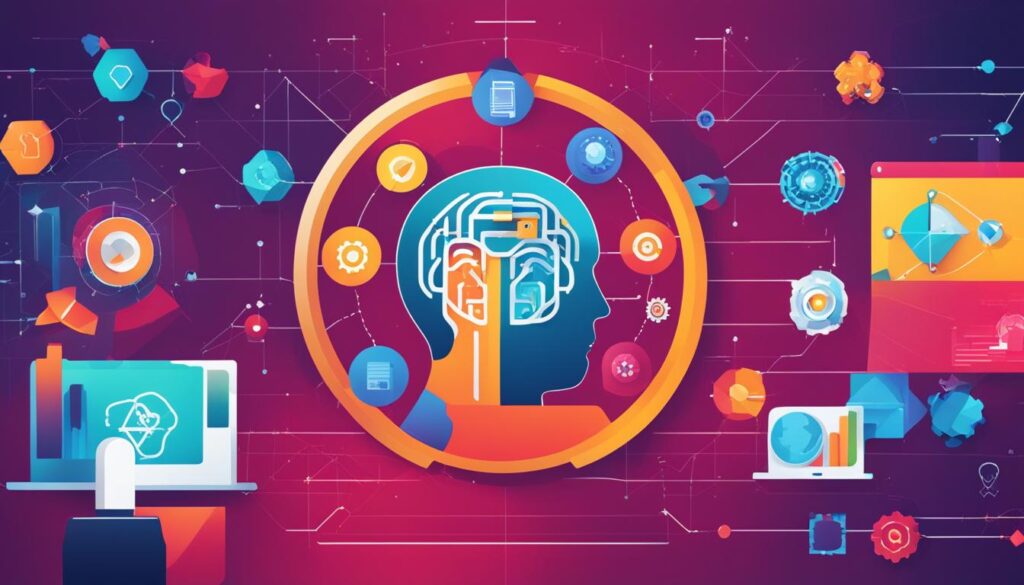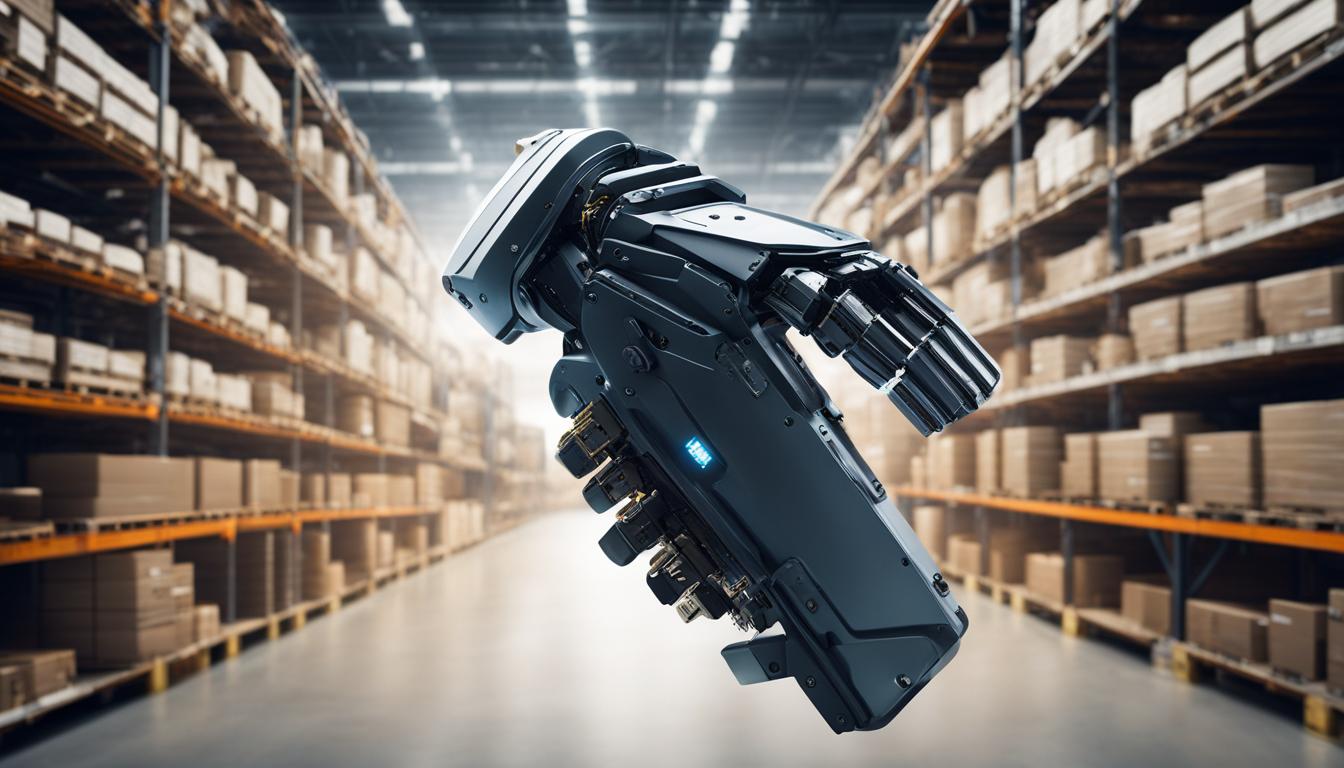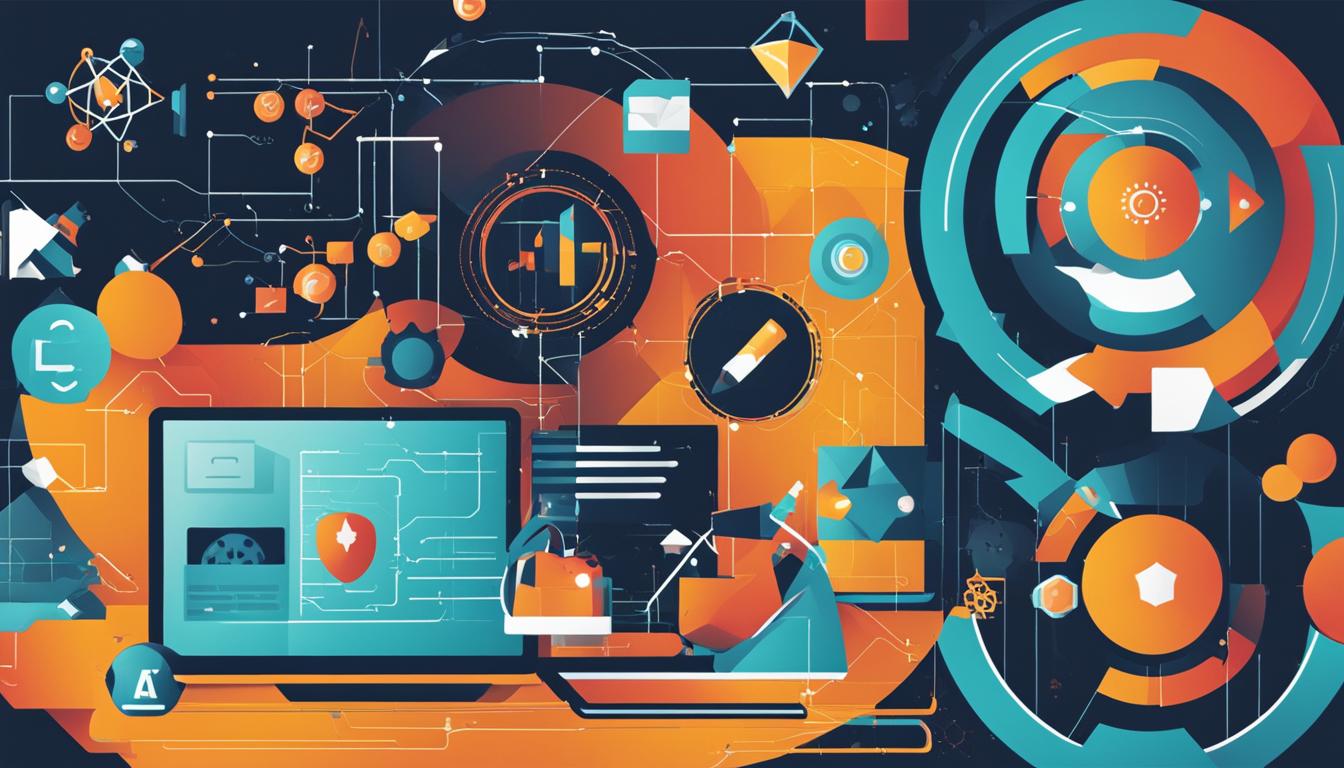Artificial Intelligence (AI) and AI in Business may seem similar, but they have distinct differences. AI focuses on developing computer systems that mimic human intelligence, while AI in Business refers to the implementation and applications of AI technology in business settings. Understanding the disparities between these terms is crucial for maximizing their potential in driving business performance and decision-making.
Key Takeaways
- AI and AI in Business have distinct differences
- AI focuses on mimicking human intelligence, while AI in Business involves implementing AI technology in business settings
- Understanding these differences is crucial for maximizing the potential of AI in driving business performance
- AI in Business can lead to improved efficiency, cost reduction, and competitive advantage
- Combining AI and Business Intelligence enables businesses to leverage the strengths of both technologies for better decision-making
What is Artificial Intelligence (AI)?
Artificial Intelligence (AI) is a field of computer science that focuses on creating intelligent machines capable of performing tasks that would typically require human intelligence. It involves the development of algorithms and models that enable machines to learn from data, reason, and make informed decisions.
AI technology encompasses various subfields, including machine learning, natural language processing, computer vision, and robotics. These technologies allow machines to perceive and understand their environment, process and analyze large amounts of data, and make predictions or take actions based on the learned patterns.
The applications of AI are vast and span across different industries, including business. AI can be used to automate repetitive tasks, enhance customer experiences with chatbots and virtual assistants, improve decision-making through predictive analytics, optimize supply chain operations, and even contribute to medical research and diagnostics.
Overall, AI has the potential to revolutionize business operations by enabling organizations to harness the power of data and advanced algorithms to drive innovation, efficiency, and competitive advantage.

AI Technology in Business
AI technology has numerous applications in the business domain, offering various benefits to organizations. By leveraging AI, businesses can automate manual tasks, reduce human error, and optimize processes for improved efficiency and productivity.
One of the key areas where AI technology is being implemented is in customer service. AI-powered chatbots and virtual assistants can handle customer inquiries, provide personalized recommendations, and improve response times, resulting in enhanced customer satisfaction and loyalty.
Another significant application of AI in business is predictive analytics. By analyzing historical data, AI algorithms can identify patterns, trends, and correlations to make accurate predictions about future outcomes. This enables businesses to anticipate customer needs, optimize inventory management, and make informed strategic decisions.
Additionally, AI technology can be used for data analysis and decision support. With advanced machine learning algorithms, businesses can gain valuable insights from complex data sets, enabling them to make data-driven decisions and drive innovation in their respective industries.
| AI in Business | Benefits |
|---|---|
| Automating manual tasks | – Increased efficiency and productivity – Cost savings – Reduced human error |
| Predictive analytics | – Accurate forecasting – Better strategic decision-making – Anticipating customer needs |
| Customer service chatbots | – Enhanced customer satisfaction – Improved response times – Personalized recommendations |
| Data analysis and decision support | – Insights from complex data sets – Data-driven decision-making – Innovation and competitive advantage |
Understanding AI in Business
The implementation and utilization of AI technology within the business context, known as AI in Business, has revolutionized various industries. AI in Business focuses on applying AI algorithms and techniques to drive better decision-making, optimize processes, and enhance overall business performance. By harnessing the power of AI, organizations can unlock a wide range of applications that deliver numerous benefits and have a significant impact on business operations.
The Benefits of AI in Business
AI technology offers a multitude of benefits when integrated into business operations. One of the key advantages is improved efficiency. AI systems can automate repetitive tasks, freeing up valuable time for employees to focus on more strategic and complex activities. This leads to increased productivity and streamlined workflows.
Additionally, AI in Business enables better decision-making through the analysis of large volumes of data. Advanced algorithms and machine learning techniques allow AI systems to identify patterns, trends, and insights that may not be readily apparent to human operators. This deep understanding of data empowers businesses to make data-driven, informed decisions, minimizing risks and maximizing opportunities.
Furthermore, AI in Business has a profound impact on customer experience. By implementing AI-powered chatbots and virtual assistants, businesses can provide real-time support and personalized interactions at scale. These AI-driven customer service solutions enhance customer satisfaction and engagement, leading to increased loyalty and repeat business.
| Benefits of AI in Business | Applications in Business |
|---|---|
| Improved efficiency | Process automation |
| Enhanced decision-making | Predictive analytics |
| Enhanced customer experience | Chatbots and virtual assistants |
The table above summarizes the benefits of AI in Business and some of its key applications. The integration of AI technology allows organizations to automate processes, leverage predictive analytics, and enhance customer interactions. These applications contribute to the overall success and competitiveness of businesses in today’s fast-paced digital landscape.
The Future of AI in Business
The potential of AI in Business is vast and continues to expand as technology advances. As AI algorithms become more sophisticated, businesses can expect even greater automation, optimization, and decision-making capabilities. AI-powered solutions will play a pivotal role in driving innovation, transforming industries, and shaping the future of business.
Moreover, the ethical and responsible use of AI in Business is of utmost importance. Businesses must consider ethical considerations, such as data privacy, bias mitigation, and transparency, to ensure that AI technology is used ethically and responsibly.
In conclusion, AI in Business is a game-changer for organizations across industries. It offers various benefits, including improved efficiency, enhanced decision-making, and enhanced customer experience. As businesses embrace AI technology and its applications, they position themselves for success in an increasingly data-driven and competitive business landscape.
Key Differences Between AI and Business Intelligence (BI)
While Artificial Intelligence (AI) and Business Intelligence (BI) both involve the utilization of data-driven insights, they have significant differences in terms of their focus and functionality.
AI: Mimicking Human Intelligence and Autonomous Decision-Making
AI is a branch of computer science that aims to create machines with human-like intelligence and the ability to make independent decisions. It leverages advanced algorithms and learning methodologies to enable machines to learn from past experiences and adapt to new situations. AI technology is used for a wide range of applications, including predictive analytics, natural language processing, and computer vision. The main goal of AI is to mimic human intelligence and enable machines to perform tasks autonomously, without explicit programming.
BI: Analyzing Historical Data and Supporting Decision-Making
On the other hand, Business Intelligence (BI) focuses on collecting, analyzing, and presenting historical data to support decision-making in organizations. BI involves the use of data warehouses, reporting tools, and data visualization techniques to transform raw data into meaningful insights. The primary objective of BI is to provide comprehensive reports and visualizations based on past performance, enabling businesses to gain a better understanding of their operations and make informed decisions. BI is particularly useful for identifying trends, patterns, and correlations in data.
Contrasts between AI and BI:
| Artificial Intelligence (AI) | Business Intelligence (BI) |
|---|---|
| Focuses on mimicking human intelligence and enabling autonomous decision-making. | Primarily involves analyzing historical data and providing reports to support decision-making. |
| Uses advanced algorithms and learning methodologies to enable machines to learn from past experiences. | Utilizes data warehousing, reporting tools, and data visualization techniques to analyze historical data. |
| Applied in various domains, such as chatbots, predictive analytics, and image recognition. | Provides insights into business performance and helps identify trends and patterns. |
Understanding the differences between AI and BI is crucial for organizations that want to harness the power of data-driven technologies. While AI focuses on enabling machines to mimic human intelligence and make autonomous decisions, BI is concerned with analyzing historical data to support decision-making based on past performance. By leveraging the strengths of both AI and BI, businesses can gain deeper insights, improve decision-making processes, and drive better business outcomes.
The Goals and Applications of Business Intelligence (BI)
Business Intelligence (BI) plays a crucial role in modern business operations by providing organizations with valuable insights and data-driven decision-making capabilities. The goal of BI is to collect, analyze, and present data in a meaningful way, enabling businesses to gain a competitive edge and drive overall performance.
BI technology encompasses a range of tools and techniques that facilitate data collection, warehousing, analysis, and reporting. These tools include data visualization software, reporting platforms, and data warehousing solutions. By leveraging these technologies, businesses can extract actionable insights from their data, identify trends, and make informed decisions.
The applications of BI in business are diverse and cover various functional areas. For example, in sales and marketing, BI can provide valuable insights into customer behavior, preferences, and buying patterns. This information can be used to develop targeted marketing campaigns, improve customer service, and drive revenue growth. In operations management, BI can optimize supply chain processes, track inventory levels, and identify areas for cost reduction. In finance, BI can provide accurate financial reporting, enable budgeting and forecasting, and support strategic financial decision-making.
| Benefits of Business Intelligence | Impact on Business |
|---|---|
|
|

The Goals and Applications of Artificial Intelligence (AI)
Artificial Intelligence (AI) has become an integral part of many industries, revolutionizing the way businesses operate and driving innovation across various fields. The goals of AI are to mimic human intelligence, develop reliable intuition, and enable autonomous decision-making. By leveraging AI technology, businesses can unlock a wide range of applications that can enhance operational efficiency, improve decision-making, and drive better business outcomes.
One of the key applications of AI in business is the use of chatbots for customer service. These AI-powered virtual assistants can provide instant support and assistance to customers, improving response times and enhancing customer satisfaction. AI algorithms can analyze customer data and generate personalized recommendations, helping businesses deliver more targeted marketing campaigns and provide personalized experiences to their customers.
Predictive analytics is another crucial application of AI in business. By analyzing historical data and patterns, AI algorithms can forecast future trends and behaviors, enabling businesses to make informed decisions and take proactive measures to mitigate risks or capitalize on opportunities. This application of AI has the potential to significantly impact industries such as finance, supply chain management, and sales forecasting.
Furthermore, AI can be used to automate repetitive tasks, streamline processes, and improve efficiency. For example, AI-powered robotic process automation (RPA) can handle repetitive and mundane tasks, freeing up human resources to focus on more strategic and complex activities. This not only increases productivity but also reduces the risk of errors and improves overall operational efficiency.
Overall, the goals and applications of AI in business are vast and varied. Whether it’s enhancing customer service, predicting future trends, or automating processes, AI has the potential to transform businesses and drive better outcomes. By embracing AI technology and exploring its use cases, businesses can stay ahead of the competition and thrive in the era of digital transformation.
Difference Between Artificial Intelligence and AI in Business
Artificial Intelligence (AI) and AI in Business may seem similar, but they have distinct differences. AI focuses on developing computer systems that mimic human intelligence, while AI in Business refers to the implementation and applications of AI technology in business settings. Understanding the disparities between these terms is crucial for maximizing their potential in driving business performance and decision-making.
AI vs Artificial Intelligence
To comprehend the dissimilarities between AI and AI in Business, it is essential to understand what each term represents. Artificial Intelligence (AI) encompasses the field of computer science that aims to create machines capable of thinking and problem-solving like humans. It involves advanced algorithms and theories that enable machines to learn from past experiences and make rational decisions. On the other hand, AI in Business refers to the implementation and utilization of AI technology within the business context.
| Artificial Intelligence (AI) | AI in Business |
|---|---|
| Focuses on mimicking human intelligence | Focuses on applying AI algorithms and techniques to drive better decision-making and optimize processes |
| Creates machines capable of thinking and problem-solving | Utilizes AI technology to improve business performance and decision-making |
| Wide range of applications from robotics to image recognition | Applications include customer service chatbots, predictive analytics, personalized marketing, and process automation |
Synergy Between AI and Business Intelligence (BI)
The combination of AI and Business Intelligence (BI) can provide a powerful analytical solution for businesses. While BI focuses on analyzing historical data and providing comprehensive reports, AI has the capability to predict future trends and make recommendations for autonomous decision-making. By integrating AI technology into BI systems, businesses can gain deeper insights and anticipate future outcomes based on historical data. The synergy between AI and BI enables businesses to leverage the strengths of both technologies, resulting in more efficient data analysis, improved decision-making, and better business outcomes.
Conclusion
In conclusion, there is a clear distinction between Artificial Intelligence (AI) and AI in Business. While AI focuses on mimicking human intelligence and making autonomous decisions, AI in Business refers to the implementation and utilization of AI technology within a business setting. The goals and applications of AI and Business Intelligence (BI) also differ, with AI aiming to model human intelligence and enable autonomous decision-making, while BI focuses on collecting, analyzing, and presenting historical data to support decision-making.
However, the combination of AI and BI can create a powerful synergy that enhances business performance. By integrating AI technology into BI systems, businesses can benefit from deeper insights and more accurate predictions based on historical data. This synergy allows businesses to leverage the strengths of both technologies, resulting in more efficient data analysis, improved decision-making, and better overall business outcomes.
To summarize, understanding the difference between Artificial Intelligence and AI in Business is crucial for businesses looking to maximize the potential of these technologies. By leveraging the strengths of AI and BI together, businesses can unlock new opportunities for growth, efficiency, and competitiveness in today’s data-driven business landscape.
FAQ
What is the difference between Artificial Intelligence (AI) and AI in Business?
Artificial Intelligence (AI) focuses on developing computer systems that mimic human intelligence, while AI in Business refers to the implementation and applications of AI technology in business settings.
What are the goals and applications of Artificial Intelligence (AI)?
The goals of AI include modeling human intelligence, developing reliable intuition, and enabling autonomous decision-making. AI technology has a wide range of applications in business, such as chatbots for customer service, predictive analytics for forecasting, and cognitive engagement for personalized recommendations.
What are the goals and applications of Business Intelligence (BI)?
Business Intelligence (BI) aims to collect, analyze, and present data in a meaningful way to support decision-making. It focuses on streamlining the process of data collection, reporting, and analysis, enabling companies to improve the quality and consistency of their data. BI technology includes tools for data visualization, data warehousing, and reporting software.
What are the key differences between AI and Business Intelligence (BI)?
AI focuses on mimicking human intelligence and making autonomous decisions, while BI primarily involves collecting, analyzing, and presenting historical data to support decision-making. AI is used for predictive analytics, pattern recognition, and automation, while BI provides comprehensive reports and visualizations based on past performance.
How can the combination of AI and Business Intelligence benefit businesses?
By integrating AI technology into BI systems, businesses can gain deeper insights and anticipate future outcomes based on historical data. The synergy between AI and BI enables businesses to leverage the strengths of both technologies, resulting in more efficient data analysis, improved decision-making, and better business outcomes.



